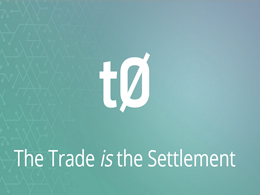
The Future Of Blockchain Regulations
A roundtable hosted by CIGI in Toronto, called “Regulating Blockchain & Distributed Ledger Technologies: Challenges and Opportunities for Canadian Innovation”, featured individuals from industry, government and academia. Addison Cameron-Huff, a technology lawyer, recently blogged his thoughts about that panel. There are very important questions he feels people must ask themselves before knowing fully the right approach to blockchain regulation. For instance, regulators, lawyers and theoreticians must know what they’re discussing. The blockchain space is nascent. Huff highlights some of....
Related News
The Swiss government has said that finance regulations should be “swiftly adjusted” to cater for fintech innovations, “in particular the Blockchain area.” In a release issued Wednesday, the country’s Federal Council said it wished to create a “dynamic fintech system” as this would “contribute significantly to the quality of Switzerland's financial center and boost its competitiveness.” “Due to the rapidly progressing digitization in the financial sector, in particular in the Blockchain area, it can be assumed that business models will develop which are not yet conceivable today,” the....
As many may already be aware, July 17, 2014, the New York Department of Financial Services (NYDFS) issued its proposal for the regulation of virtual currencies (Proposed Regulations).¹. At this point, the Proposed Regulations are exactly that - a proposal. There is a 45-day period of public comment, after which the NYDFS may or may not consider the comments it receives. Then, with any revisions that NYDFS deems necessary, the Proposed Regulations will become final and official. Understandably, there has been quite an uproar about the Proposed Regulations among the virtual currency world,....
Imagine a world where any business or company could go public without the excessive and often unfair costs involved. A place where the stock market did not control the future of our children and fluctuate our daily expenses based on nothing more than a few personal gains. These gains owned by few who — through the use of the media and internal conversations — manipulate the future of our global wealth. Wealth that could be brought back to the original owners, us, the people. What if we had regulations that would protect us from such a thing? Would you believe those regulations to be....
Will centralized exchanges continue to provide the regulated environments required for digital assets to evolve into the mainstream, or will the future belong to DEXs? Decentralized exchanges are undoubtedly an exciting development in crypto. DEXs facilitate the trading of cryptocurrencies directly between users, without the need for a trusted intermediary. This, in turn, allows users to keep custody of their funds.However, while DEXs have their advantages, they still lack in terms of regulations and scalability, which are key considerations that could determine the future trajectory of....
As the traditional financial world begins its mainstream adoption of crypto assets, the process of legitimizing digital assets as financial products pose myriad of risks and regulatory challenges. Breaking Down the SEC’s Future Crypto Regulations Today, the U.S. Securities and Exchange Commission (SEC) released an 8-page document that details the framework in which the agency will examine digital asset investments. Demanding regulatory compliance across areas ranging from custody, bookkeeping, registration requirements to conflicts of interest […]





